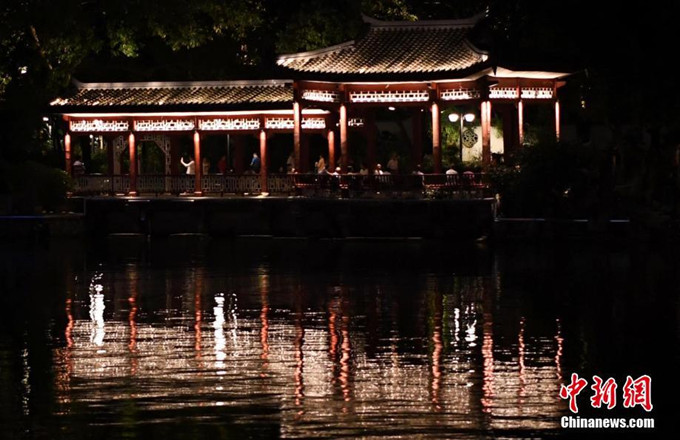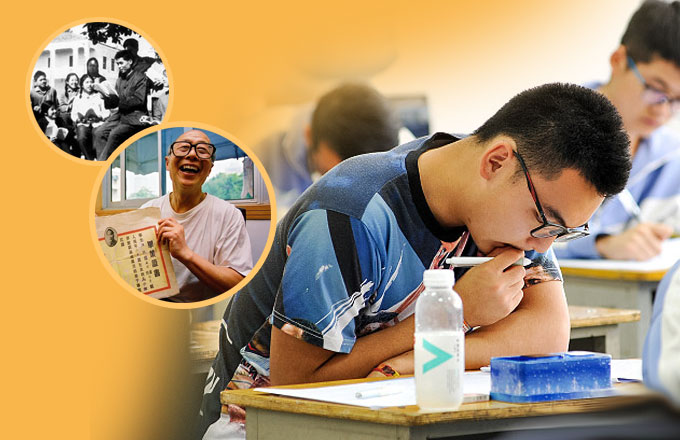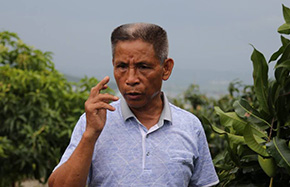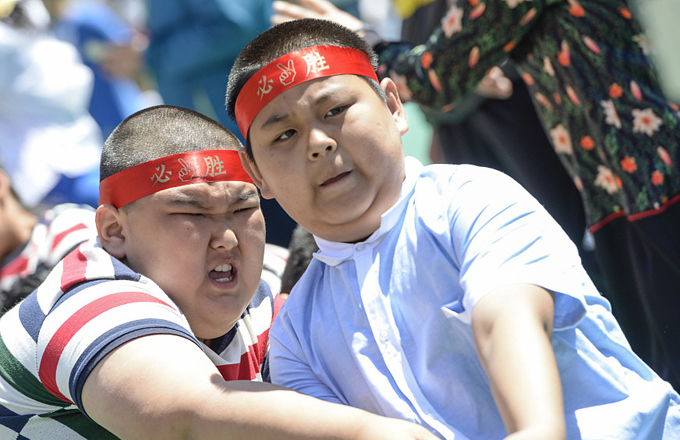Gaokao opened to migrant students
Move aimed at boosting equality in education system, officials say
Migrant students were allowed on Friday for the first time to take part in national college entrance exams away from their home regions, a move that officials say highlights efforts to boost equality in education.
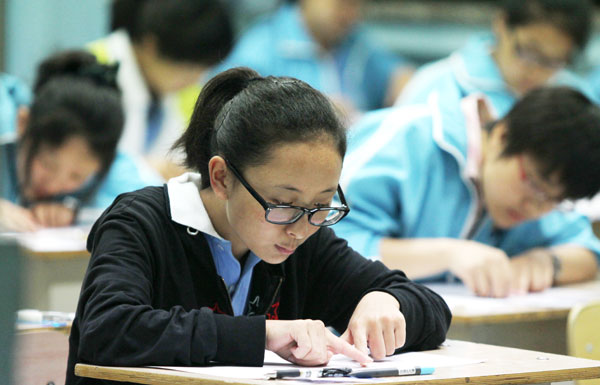 |
|
Students work on their exams at the exam site of Beijing Tibet Middle School in Beijing on Friday. Zhu Xingxin / China Daily |
"Although there are some strict requirements for migrant children to take the exams in Guangdong, the reform is a significant improvement in the educational system," said Guo Kaizhi, principal of Haizhu Middle School in Guangzhou, the capital of Guangdong.
The school has a large number of migrant students.
"According to the new rule, a growing number of students in the school will be allowed to take the gaokao after three years," Guo told China Daily.
The first batch of some 4,500 migrant students from 10 provinces and autonomous regions took the annual examination, or gaokao, which is the sole State-sanctioned way to access the nation's institutions of higher learning.
A migrant student is a person who has a registered permanent residency address, or hukou, that does not match his or her current residence.
In the past, students were allowed to attend primary and middle schools in the city where their parents worked and lived, but they had to go back to their hometowns to take the gaokao.
By the end of December, most provinces, municipalities and autonomous regions released detailed plans to reform the gaokao system for the children of migrant workers.
But in some big cities and regions, which have a large number of migrant workers, students will still need to wait some time to fully benefit from the new rules.
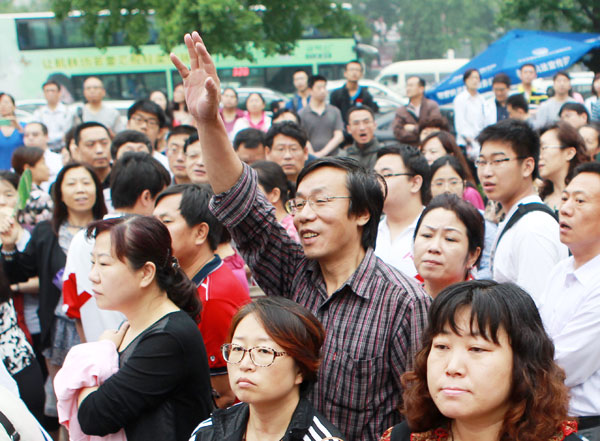 |
|
Family members of students wait anxiously outside the exam site at the High School Affiliated to Renmin University of China in Beijing on Friday. About 9.12 million applicants are expected to take this year's national college entrance exam on Friday and Saturday. Cui Meng / China Daily |
In Beijing, migrant students still cannot take the exams in 2013 and 2014. They're only allowed to attend secondary vocational schools from this year and higher vocational schools from next year. After finishing their studies at higher vocational schools, they can apply for universities.
Authorities in Shanghai said the new rules will allow non-resident children to enter senior high schools, and vocational schools and take the gaokao in 2014.
In Guangdong, migrant students will only be allowed to take the gaokao and compete with native residents on equal footing in 2016, although the southern province is the largest province in terms of the population of students taking part in the gaokao this year, with some 730,000 students expected to take the exams.
Migrant workers must meet some requirements, including having stable jobs and incomes, for their children to benefit from the new rules.
About 9.12 million students in the country are taking the exams to vie for access to the country's universities and colleges this year. The number is 30,000 less than last year, according to Xinhua News Agency.
As heavy rain hit most parts of the country on Friday, parents holding umbrellas or hiding under shelters waited anxiously outside the 310,000 exam rooms at 7,300 venues nationwide.
China has mobilized several State departments to guarantee order and ensure that all examinees have a smooth experience.
In Beijing, 7,000 traffic officers were dispatched to the roads to maintain order and ensure students got to their exams on time, as torrential rain, thunder and lightning hit most parts of the city, said a spokesman from the Beijing Traffic Management Bureau of the Beijing Municipal Public Security Bureau.
Thanks to joint efforts by traffic police and educational authorities, the exams have not been affected by the rainstorms which are expected to continue over the weekend, according to a Ministry of Education statement on Friday.
In Dingzhou, Hebei province, a student fell into an uncovered drainage hole at around 2:14 pm when she was running to take an afternoon gaokao during a heavy rainstorm. She was found dead at another drainage hole three hours later, according to China National Radio.
Li Jinhua, 39, from Beijing, was waiting for her daughter to exit the examination room on a street. "We came very early because of the rain. My daughter was allowed to go into the examination room as soon as we arrived here," she said.
In Shanghai, the road near Gezhi Middle School was half-blocked by traffic police. Many parents were waiting quietly in nearby coffee shops and parks.
"It's raining heavily today so students are allowed to enter the examination rooms earlier," said Wang Shun, a first-year college student who was waiting for a younger relative. "That's why not many parents are accompanying their children to the school gates."
Hou Liqiang and Li Jing contributed to the story.






